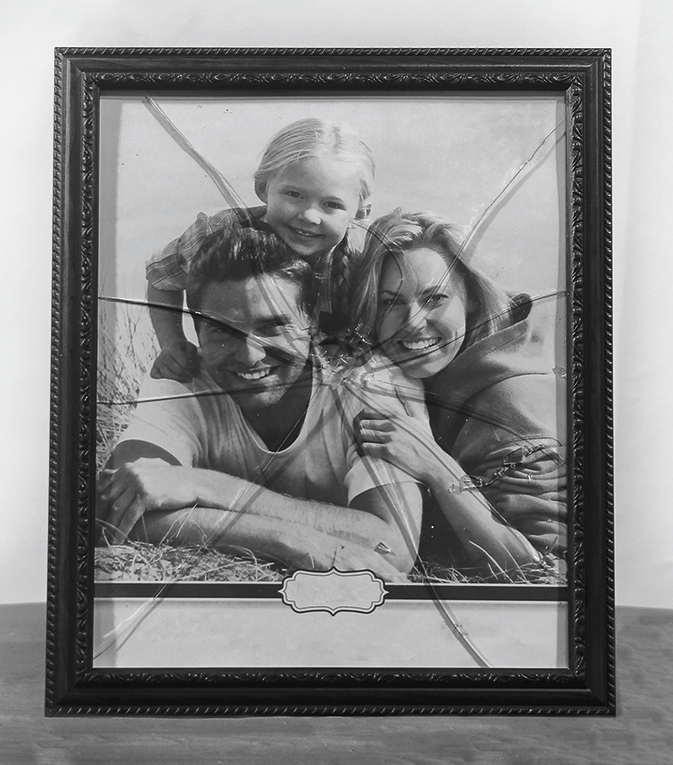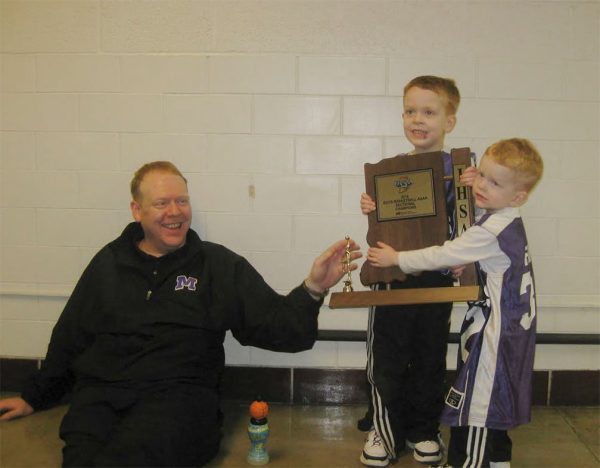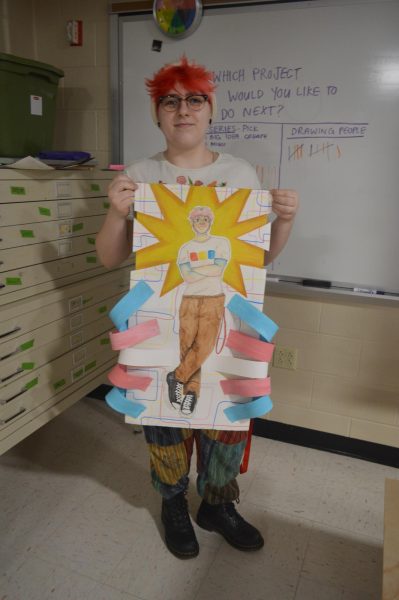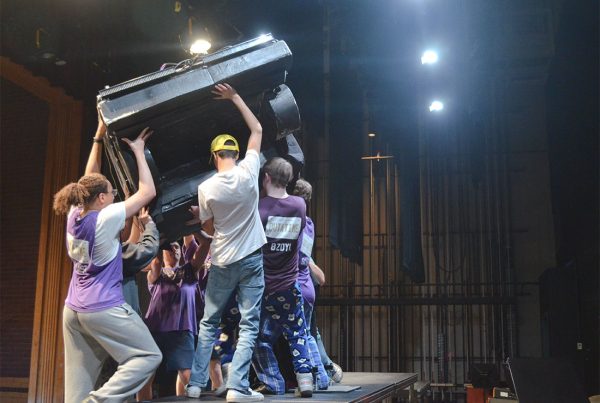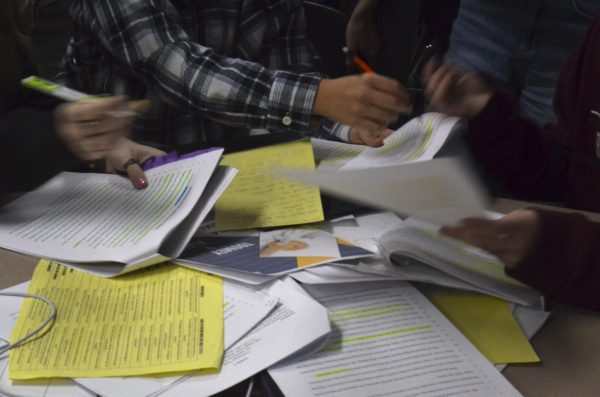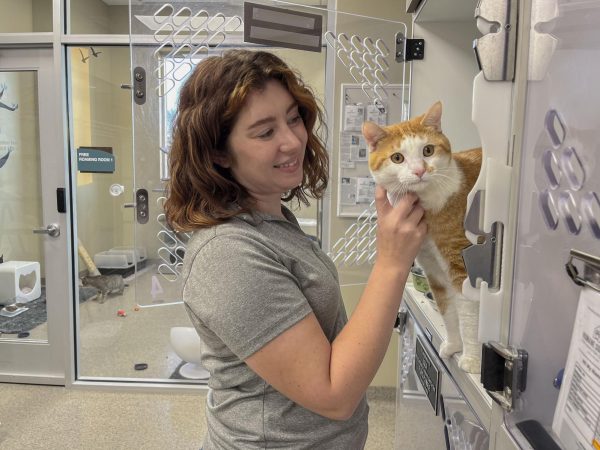A house divided
November 21, 2017
Riverdale, Friends, and Keeping Up With the Kardashians are popular with students at NHS for a lot of reasons. But these very different shows share one common dilemma: divorce. The breakup of a marriage manifests differently in each family where it happens, but overall it has become increasingly more common. According to the American Psychology Association, about 40 to 50 percent of children born today will experience the separation of their parents.
When kids are caught up in a divorce, it only adds to the pre-existing chaos; however, many children today do have to deal, on a daily basis, with the constant tug of war that comes with divorce. Custody battles can be headaches; moving around and taking personal items back and forth is often normal for those with split parents. Aside from surface level exhaustion, children can be overwhelmed by an inconsistent situation to the point that they struggle mentally and emotionally. According to Statistic Brain, the need for a child to receive psychological help increases by 90 percent during the process of their parents’ divorce. While outsiders might think the idea of a double Christmas sounds appealing, most children would probably agree that divorce is not something to celebrate.
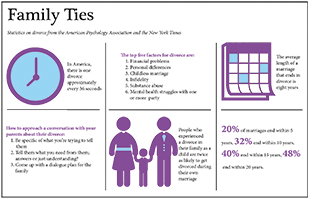
13 GOING ON 30
With children of divorce, it’s not unusual for kids to start taking on new roles that they might not have if their parents had stayed together, and children are commonly forced to mature much quicker than children whose parents are together.
Dr. David Olges, an assistant professor at Regent University with a doctorate in counselor education and supervision, says that children of divorce are often forced to put their feelings aside and move on.
“When divorce happens, kids have to grow up faster,” Olges said.
Junior Carlee Williams parents divorced when she was in first grade. She says the split forced her to grow up at a young age by introducing new and heavy topics that she wouldn’t have otherwise had to understand. Instead of spelling tests and recess like most first graders, Williams was concerned with her parents separation.
“My brother told me it was my fault, so I thought it was for three years,” said Williams “I thought my mom was going to be really mad at me.”
Williams says going through something as difficult as divorce taught her that not everything is perfect.
“[Conflicts] do happen in families, but you can overcome anything,” Williams said.
Olges says that learning that life isn’t always a happy ending can occur earlier for children of divorce, as they can sometimes abruptly lose the typical childhood belief that “everything will be okay.”
“[Children of divorce] have to become more responsible not only with chores, but with their emotions. They have to get up and keep going,” Olges said. “They don’t get as much time to spend with their emotions.”
Olges says that this emotional growth is known as “parentification.” Parentification is a type of role-reversal between parents and other family members, in which children assume high levels of responsibility in their family that go unrecognized, unsupported, and unrewarded, according to Dr. Lisa M. Hooper, Professor and Program Coordinator of Clinical Mental Health Counseling for the University of Louisville.
Williams says that having divorced parents has taught her to be more independent and has given her the opportunity to learn how to take care of herself when necessary.
“I learned to cook,” she said cheerfully.
In addition, some children are also subject to other changes. Spousification is when a child’s responsibilities model those of a spouse or partner, according to Linda Burton, the Director of the Center for Child and Family Policy at Duke University. Through spousification, Burton says, a child takes on the emotional support for his or her now single parent in place of being raised as a child. Divorce is a big adjustment for a family, but it can also be a push for a child to grow up.
Building resilience
Olges suggests that children in a divorced home begin building resilience as a coping mechanism to deal with their situation. He says kids can start building resilience by first accepting that it is okay to be sad.
“You’re losing something you didn’t want to lose, so it’s ok to take time to grieve,” Olges said. “Divorce is saying goodbye to what your life has been like.”
After a breakup, kids sometimes feel they have to “get over it” and just move on, but Olges believes it’s healthier to acknowledge the hurt and deal with it. He says that being upset makes sense in a situation like this and that crying doesn’t make people weak.
According to Olges, building relationships helps too. That can take many forms, such as strengthening prior friendships, getting closer to family, or meeting new people and learning. Experts believe that maintaining strong relationships is always good during the highs and lows of life, and having a buddy on the ride is assuring and helpful.
“If you do have friends, go spend time with them,” Olges said. “They will help support you, and help you get away so you don’t have to think about [the divorce] as much.”
Experts point out that taking care of their health is also important for teens in stressful environments. Physically, it’s better to keep an eye on habits and try to get into routines such as regular exercise and sufficient sleep. Research has shown that mental health needs taken to be care of, and maybe even deserves more attention during a transition like divorce.
Olges also says family members should remember to praise each other frequently. During a painful change like divorce it’s easy to get caught up in the negativity and accidentally lash out at other people because of it, and he says a compliment will remind individuals that they still deserve recognition. Staying positive is also crucial because chances are, divorce is affecting the whole family, not just one person.
“Everyone going through this is going to need support and appreciation when they do things right,” Olges said.
Therapists who work with teens often make an effort to remind their clients that a divorce is completely out of the hands of the children involved, which can be hard for some to kids to understand. For those teens, it helps to stay distracted by keeping busy with other things.
“Focus on what you can control during a divorce which you cannot,” Olges said.
Things like schoolwork, hobbies, exercising, and friendships are ways that kids can spend their time instead of thinking about the divorce.
Although divorce can oftentimes seem too much to handle, building resilience is important and possible. For teens, it’s crucial to remember that their parents’ divorce is simply a stage in their life, not the basis of it–and that although they have no control in stopping it, they do have control of their reactions to it.


